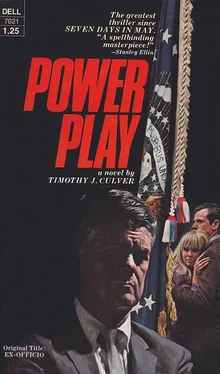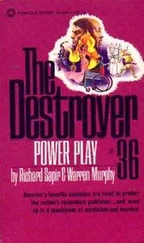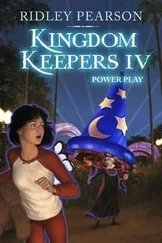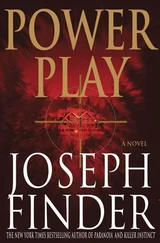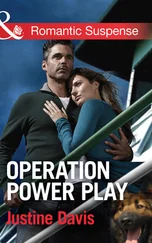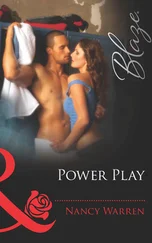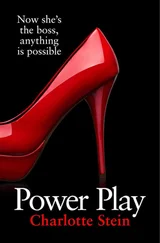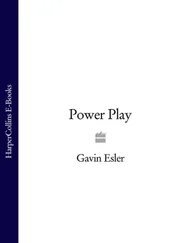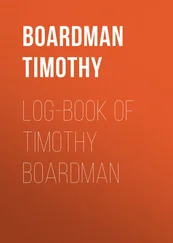Timothy Culver - Power Play
Здесь есть возможность читать онлайн «Timothy Culver - Power Play» весь текст электронной книги совершенно бесплатно (целиком полную версию без сокращений). В некоторых случаях можно слушать аудио, скачать через торрент в формате fb2 и присутствует краткое содержание. Город: New York, Год выпуска: 1971, ISBN: 1971, Издательство: Dell Books, Жанр: roman, на английском языке. Описание произведения, (предисловие) а так же отзывы посетителей доступны на портале библиотеки ЛибКат.
- Название:Power Play
- Автор:
- Издательство:Dell Books
- Жанр:
- Год:1971
- Город:New York
- ISBN:978-0440070214
- Рейтинг книги:5 / 5. Голосов: 1
-
Избранное:Добавить в избранное
- Отзывы:
-
Ваша оценка:
- 100
- 1
- 2
- 3
- 4
- 5
Power Play: краткое содержание, описание и аннотация
Предлагаем к чтению аннотацию, описание, краткое содержание или предисловие (зависит от того, что написал сам автор книги «Power Play»). Если вы не нашли необходимую информацию о книге — напишите в комментариях, мы постараемся отыскать её.
Occupation: Former President of the United States
Problem: Obsessive desire for power.
Loved and hated more than any man on earth, commanding absolute loyalty from the men and women who once had served him, defying the government he once had headed, Bradford Lockridge pursued his final and possibly insane vision of glory...
Power Play — читать онлайн бесплатно полную книгу (весь текст) целиком
Ниже представлен текст книги, разбитый по страницам. Система сохранения места последней прочитанной страницы, позволяет с удобством читать онлайн бесплатно книгу «Power Play», без необходимости каждый раз заново искать на чём Вы остановились. Поставьте закладку, и сможете в любой момент перейти на страницу, на которой закончили чтение.
Интервал:
Закладка:
“You’d think the first time could have been better,” she said, through her laughter, through her tears.
vii
Bradford wasn’t getting anywhere, and Evelyn didn’t know what she could do to help. As the days went by, he became gloomier and gloomier, shorter of temper and steadily more pessimistic. And he moved and acted and looked more like an old man.
He had come here with too much hope, that was what it was. And now the inaction, the lack of progress, were affecting him much more than they would have in the old days, when there was always something going on. He had in effect come out of retirement, and his greater anticipation had resulted in a similarly greater disappointment.
The Chinese official, Kwong Lan Quey, had made the first tentative suggestions concerning this meeting as far back as last fall, nearly a year ago. Bradford hadn’t made a positive response at first, but had quite properly contacted people he knew in the State Department to get their reaction to the idea.
The people at State were understandably cautious, perhaps overly cautious. Kwong Lan Quey made an overture once again, in another letter, and Bradford began despite himself to get excited at the prospect of being useful and active once more. He insisted to State that no harm could come from the meeting, and in fact that it could have a beneficial result, and at last they decided it was worth the gamble, provided certain ground rules were maintained.
In the first place, they insisted on a European locale for the meeting. Obviously Kwong Lan Quey would prefer not to come to the Western Hemisphere, but State was adamant in its refusal to allow Bradford to go to any meeting site in Asia. It was true that he was retired, but he was still at least symbolically a famous and important American, and the risks of either kidnapping or assassination seemed to State too high in Asia.
In the second place, they insisted on a full announcement of the meeting to the press well in advance. Secret talks which then leaked could result in unfortunate conclusions about altered U.S. attitudes toward China in other more friendly Asian capitals. The unofficial nature of the meeting would have to be stressed.
Third, they insisted that the meeting take place in an atmosphere of other activities. That is, in whatever city was chosen, arrangements would have to be made for Bradford to hold other meetings with other individuals as well. The trip should be made to seem multi-purposed, and not be exclusively for the sake of an ex-President traveling thousands of miles expressly to meet an obscure (in Western minds) Communist Chinese official.
State also insisted for a while that Kwong Lan Quey provide an agenda, or at least some general idea of the topics he wished to discuss, but on this point the Chinese was obdurate, and Bradford himself saw no reason to make the meeting stand or fall on it, so ultimately State came around and withdrew that as a condition.
The other three, however, were met. The site chosen was Paris, it being traditionally a congenial locale for discussions between Americans and Asians. (Warsaw, Kwon Lan Quey’s original suggestion, was frowned on by State.) The meeting was announced to the press, and its unofficial nature was stressed. And arrangements were made for Bradford to meet with a few other individuals as well, primarily with the current Premier of France and with a retired Italian Premier whose administration had been concurrent with Bradford’s and who happened to be in Paris at this time anyway. But the prime interest — Bradford’s as well as that of the press — was in the meeting with Kwong Lan Quey.
It was the Chinese who presented the ground rules for the meeting. It was to be four meetings, actually, rather than one. They were to be held on Saturday, June 30th; Monday, July 2nd; Thursday, July 5th; and Sunday, July 8th. All were to be afternoon meetings, to begin with lunch at one o’clock and continue until either participant declared the meeting ended.
The first meeting continued through a 7:00 P.M. dinner, and didn’t conclude until nearly ten o’clock. Bradford returned from that one excited and hopeful, convinced he and Kwong Lan Quey were on the threshold of something truly important. He was so buoyed up, his mind so full of the meeting just completed, that his usually observant eye failed him and he took no notice of the strange silences and odd manner of Evelyn, who had only a short while before finished her ambivalent emotional outburst following the experience with the little Frenchman. Evelyn of course said nothing about that, but listened instead to Bradford’s description of his first meeting with Kwong Lan Quey.
It had been strange, but not yet disturbing. The Chinese had kept the talk strictly in the area of reminiscence, not only of his and Bradford’s scanty acquaintance over the years, but also of world events as they had affected the two of them. He had, for instance, given detailed information on his whereabouts and personal doings at the onset of such-and-such a specific world crisis, and elicited similar memories from Bradford. “Where were you when the word came of John Kennedy’s assassination? What were you doing when you first heard of the attack on Pearl Harbor?” That sort of thing, endlessly.
And yet Bradford was hopeful. It had seemed to him that here and there in the meandering course of the conversation he had detected gleams of light. “He’s leading up to something,” he told Evelyn.
On Sunday there was a cocktail party at the American Embassy in Bradford’s honor. Evelyn attended, and was approached with more or less subtlety by two Frenchmen and three Americans. She brushed them all off without a qualm, and didn’t even take her usual pleasure in being considered a woman worth making a play for.
Monday was Bradford’s second meeting. Ann Gillespie called in the late morning, her voice dry as dust on the phone, and invited Evelyn to join her for lunch and an afternoon at the Louvre. Evelyn went with her, and it turned out what Ann wanted was merely an ear into which to pour her troubles, of which Carrie was only incidental. Ann’s primary problem was her son Charles who, she said, was being unduly and badly influenced by Edward Lockridge’s son Eddie.
“But Eddie’s four years younger than Charles,” Evelyn said.
“Charles isn’t strong-willed,” Ann said. “I suppose he got that from me, God help him. Anyone can push either of us around.”
Eddie Lockridge was a radical, it seemed, of the type which had flowered briefly a few years before in the United States. It was an extremely nihilistic radicalism, craving apocalypse for its own sake, and it had not taken root in the eternally optimistic American soil. European history, however, leads almost inevitably to at least a recognition of some sort of nihilistic philosophy, so this new wave of youthful nihilism had not worn itself out on rock music and drugs and teen-age sex play, as it had in the United States, but had gone almost directly into the arena of anti-political action, with the Scandinavian Provos showing — but not necessarily leading — the way.
So long as Charles had had Princeton, the influence of Eddie Lockridge had been only sporadic and temporary, giving Charles merely transient periods of feeling that he should be “doing” something, the something never quite defined. But last month Charles was graduated, and now he had come to a decision point in his life. Ann, of course, wanted him to go on to graduate school, as did Carrie.
But now Eddie Lockridge’s evil influence was at last coming into its own. Eddie wanted Charles to give up schooling — in the brave new world after the apocalypse, what would a master’s degree be worth? — and to stay in Europe, in Paris. There was some sort of group to which Eddie belonged, and he wanted Charles to join it. They were going to “do” things. What things? No one would tell; no one seemed to know.
Читать дальшеИнтервал:
Закладка:
Похожие книги на «Power Play»
Представляем Вашему вниманию похожие книги на «Power Play» списком для выбора. Мы отобрали схожую по названию и смыслу литературу в надежде предоставить читателям больше вариантов отыскать новые, интересные, ещё непрочитанные произведения.
Обсуждение, отзывы о книге «Power Play» и просто собственные мнения читателей. Оставьте ваши комментарии, напишите, что Вы думаете о произведении, его смысле или главных героях. Укажите что конкретно понравилось, а что нет, и почему Вы так считаете.
